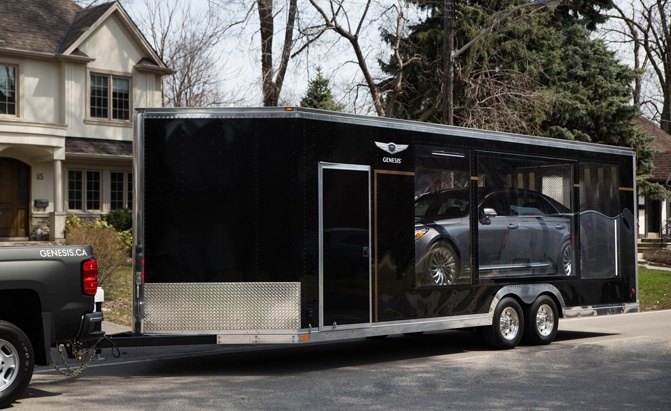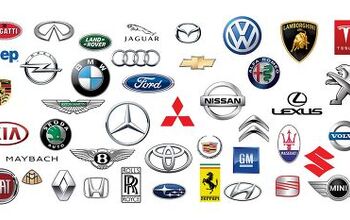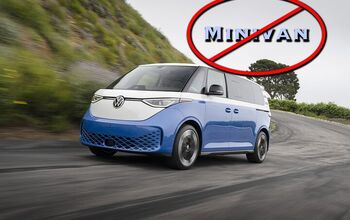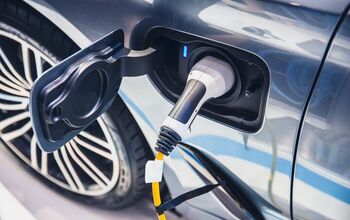Why Can't I Buy a New Car Online?
In this age of click-to-purchase and Amazon Prime, why is it so difficult to buy a brand new car online? Aside from boutique brands like Tesla, which have eschewed the dealer model in favor of direct sales, major automakers have been reluctant — or, as we’ll see later, unable — to fully expand their sales efforts onto the Internet.
That’s not to say that there aren’t work-arounds, one-off efforts, and unique marketing efforts aimed at getting new metal in your driveway without you having to darken the door of a dealership. To understand how we got to where we are now, however, we have to look back at the digital path that was taken, and the laws that have shaped the dos and don’ts of Internet auto sales.
Franchise Law Bites Hard
There’s a big dark cloud hanging over any car company that wants to embrace an online sales model for brand new vehicles, and it’s formed out of the legislation that bars automakers from competing with any of their dealer franchisees. There’s not a single U.S. state that would allow, say, Ford to own its own dealership outright, and that exclusion also applies to direct Internet sales, which are seen as equivalent in terms of competition. In fact, a growing number of states have signed additional legislation making it clear that an OEM-owned online storefront is just as much of a no-no as a brick-and-mortar location (with Ford even once facing a backlash from Texas all the way back in the year 2000 after a bid to sell used vehicles directly was quashed).
Individual car companies in the United States have approached this problem in different ways. Some, like General Motors, have tried programs like Shop-Click-Drive, which since 2013 has allowed for almost every aspect of the sales process to occur on their web browser or mobile phone — with the exception of having to head to a physical dealer location to sign the paperwork, take delivery, and have their trade-in evaluated. The ill-fated Scion brand also debuted something similar in 2015 called Pure Process Plus, which generally matched the GM initiative and allowed for pickup at a limited number of participating dealerships (and which was eventually ported to Toyota after Scion’s demise under the Express Purchase banner).
In addition, GM ran a brief partnership with eBay in the state of California that put 20,000 vehicles online for purchase through a special sub-section of the auction giant’s site. It’s important to note, however, that these vehicles were all part of local dealer inventory, and didn’t come directly from the mothership itself, thus playing within the guidelines established by franchise law. Further past experiments even broke out of North American borders, including Amazon’s unusual foray into selling Fiats in Italy (picked up at the dealership once again).
Third-Parties A-Plenty, But Can’t Avoid Dealer Participation
Things are a little looser for third-party companies seeking to do direct business with car-buying customers in America. It’s a given that the used market faces none of the franchise restrictions faced by OEMs, which has allowed a host of players such as Truecar, Carvana, and Vroom to dabble in the “buy from us, never set foot in a dealership” model. In some cases, new cars are also available through these services. Still, for the most part, these services are overlaid on top of the standard dealer model through partnerships that, even if you don’t have to deal with a traditional salesperson, continue to use the legal framework of a dealership within which to make the purchase and delivery of your vehicle.
Canada Keeps It Loose
In Canada, the situation is a little different. Tesla has faced — and continues to face — enormous push-back from dealer organizations in America concerned that its combination of wholly owned boutique storefronts and online orders precedent will embolden other car companies to try the same thing.
North of the border, however, Tesla has avoided the same kind of scrutiny, as there’s no similar set of laws making it illegal. Further proof of Canada’s increased permissiveness when it comes to direct online sales can be found when looking at the case of Genesis, Hyundai’s new luxury brand, which is basing its entire Canadian strategy on online ordering buttressed by service centers in major metropolitan areas — a direct contrast to the dealer-heavy model employed by the company in the United States.
See Also: Hyundai’s Genesis Brand to Sell Cars Online, But There’s a Catch
As in America, third-party companies are getting in on the online sales act in Canada. Solutions Medias 360 has begun partnering with dealers to sell brand new cars in the province of Quebec, for example, using an online model that doesn’t require any visit to the dealership at all. Every aspect of the buying process, including financing, choosing options, and then scheduling home delivery (within a 25-kilometer radius of an existing dealership), occurs in the digital space.
Still, this is being done in partnership with dealers, not OEMs, even despite the lack of a legal requirement for dealerships to remain involved in the transaction – indicating how reluctant most car companies are to engage in direct sales.
Is Car Sharing the End-Game for Direct Sales?
What does the future of one-click Internet car shopping look like? In the U.S. it seems unlikely that franchise law will change anytime soon, which means dealerships will continue to serve as intermediaries in any kind of new car sale. In Canada, the same barriers don’t exist, and with Genesis leading the way, it’s entirely possible that other smaller brands will leap in with online sales efforts of their own should the Korean company find success.
See Also: You Can Now Pay a Monthly Subscription for Access to Cadillacs
There are a few companies, however, that may be experimenting with a new workaround in terms of dealing with franchise laws in America. Car subscription services operated by OEMs like Porsche, BMW, Volvo, and Cadillac allow a customer to pay a fixed monthly price for access to a range of vehicles through a mobile app, without having to own any of them or be responsible for any of their maintenance. These programs currently only operate in select cities but could point a path forward for automakers looking to do an end-run around legislation that has yet to catch up with 21st-century buying habits.
More by Benjamin Hunting



































Comments
Join the conversation
The virtual buying process of a vehicle is not in the dealer space. The future of online buying and selling is in the private sector. This sector is not regulated by any law and does not restrict the online buying process.
Car vending machines are just a process model used like an OEM and using dealers for delivery. OEM's are not ready to play in the finance space. Dealers and banks have created a model that would never cater for online purchase.......unless dealers start aligning with banks to create a online buying process.